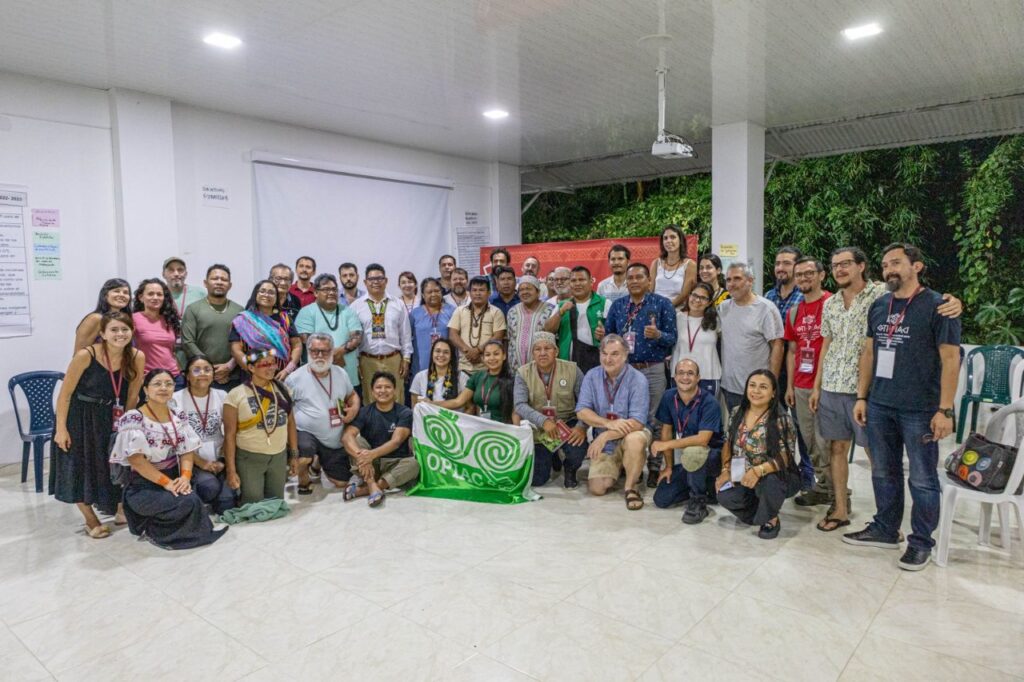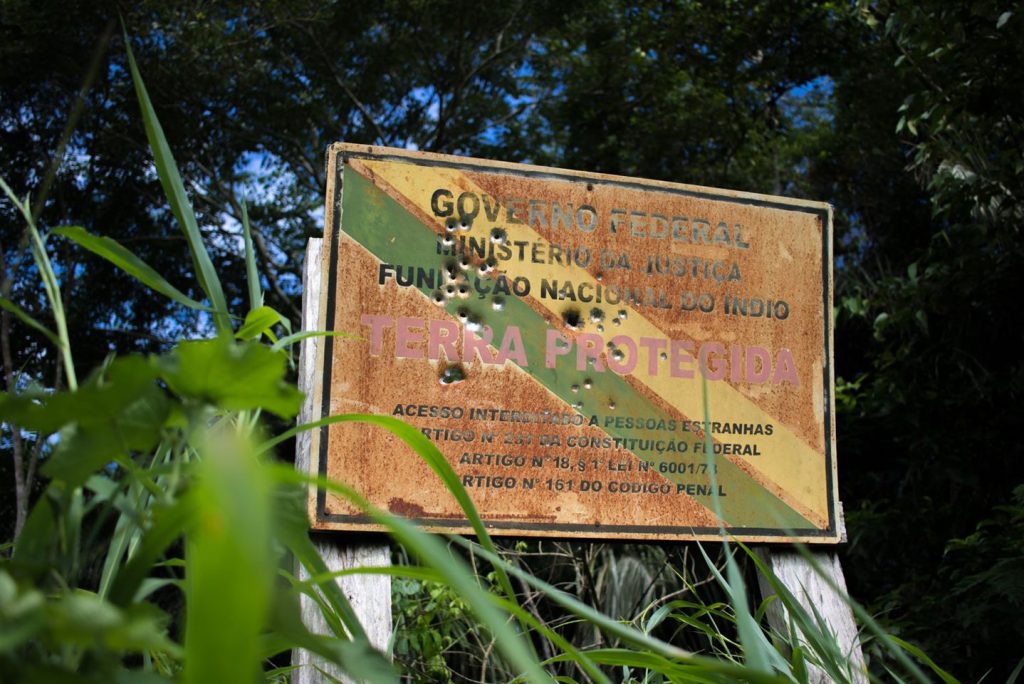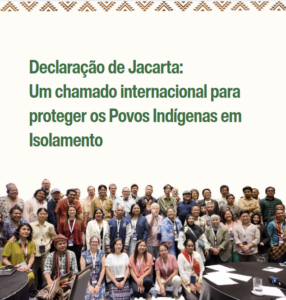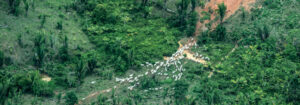Nineteen indigenous and civil society organisations met in Bogotá, Colombia, between 19 and 23 February for the Annual Assembly of the International Working Group on the topic
Protecting isolated indigenous peoples and preserving the forest throughout the International Amazon, where most of these groups live, through transnational strategies, are the challenges debated by the indigenous and civil society organisations that make up the International Working Group for the Protection of Isolated and Recently Contacted Indigenous Peoples (GTI-Piaci), during its annual assembly held this week in Bogotá, Colombia. The WG counts 185 groups in isolation, with 66 confirmed, located in the nine Amazonian countries, the Brazilian savannah and the Gran Chaco region, between Bolivia, Argentina, Paraguay and Brazil.
"The threats to these peoples are cross-border, such as drug trafficking, illegal mining, illegal logging, which occur in the border areas between South American countries, so we have to think together, all the countries, about strategies to protect the peoples that are also cross-border," said Maria Emília Coelho, who attended the assembly representing Opi.
For the organisations present, it is also crucial to involve indigenous communities in the planning and implementation of protection measures, since often the greatest guardians of groups in isolation are already contacted indigenous people who share territories with isolated peoples. The support of international organisations and governments also plays an important role. The meeting in Bogotá was also attended by the Amazon Cooperation Treaty Organisation (ACTO) and the UN Special Rapporteur on the Rights of Indigenous Peoples, Francisco Tzay. Coiab's general coordinator, Toya Manchineri, spoke to the rapporteur about the threat posed by the temporal framework thesis, in a meeting which was also attended by Amanda Villa, a representative of Opi.
During the Assembly, Colombia's Minister of Agriculture and Development Jhenifer Mojica was present to discuss the situation of the country's isolated peoples, as well as representatives from the Ministry of Defence and the Colombian Senate. The Organisation of Indigenous Peoples of the Colombian Amazon (Opiac) drew attention to the situation of the recently contacted Nukak indigenous people, who had one of their young men killed in strange circumstances in February. The GTI-Piaci issued a statement calling for urgent protection measures for the group.
The note also highlights the International Working Group's concern about the Peruvian Congress' modification of the Forestry and Wildlife Law. The change, made without respect for the right to prior, free and informed consultation, jeopardises the existence of isolated indigenous peoples and their integrity as defenders of the environment. The role of indigenous peoples as producers and protectors of biodiversity is crucial for containing the climate emergency that threatens all of humanity.
The GTI-Piaci is made up of organisations from eight countries - Brazil, Paraguay, Bolivia, Suriname, Ecuador, Peru, Venezuela and Colombia - who work in a collaborative network to articulate the protection, defence and promotion of the rights of isolated and recently contacted indigenous peoples in the Amazon, Cerrado and Gram Chaco regions. Their objectives are to make visible the situation in which the rights of these peoples are being violated and to strengthen strategies and actions for the protection and defence of their rights. During the assembly, the general secretariat of the International Working Group was taken over by the Amazon Conservation Team (ACT).




